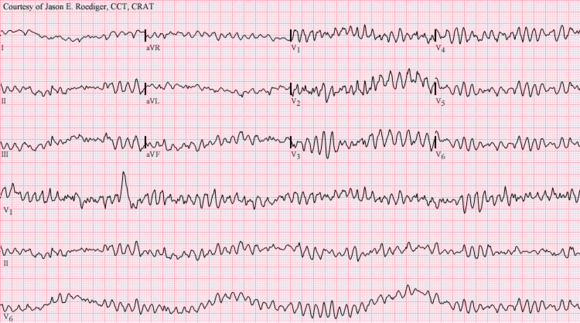Cardiomyopathy
Cardiomyopathy is a group of primary diseases affecting the heart muscle. These conditions can lead to severe complications, including heart failure, irregular heartbeats, and sudden cardiac death.
Cardiomyopathies are characterised by morphologically and functionally abnormal myocardium without any other disease causing the observed phenotype.

Signs and Symptoms
Cardiomyopathy may present with various signs and symptoms, especially as the disease progresses. Initial stages may be asymptomatic, but as the condition worsens, patients may experience:
- Shortness of breath, especially during physical exertion.
- Fatigue.
- Swelling in the ankles, feet, legs, abdomen, and neck veins.
- Dizziness and lightheadedness.
- Fainting during physical activity.
- Arrhythmias (abnormal heartbeats).
- Chest pain, particularly after exertion or heavy meals.
- Heart murmurs.

Causes
Cardiomyopathies can be of genetic (familial) or non-genetic (acquired) origin. Genetic causes often involve sarcomere or cytoskeletal diseases, neuromuscular disorders, and inborn errors of metabolism. Non-genetic causes may include viral infections, myocarditis, alcoholism, drug toxicity, and certain infections like Hepatitis C. Other systemic diseases, such as amyloidosis and hemochromatosis, can also lead to cardiomyopathy.
Mechanism
The pathophysiology of cardiomyopathies involves disturbances at the cellular level, often due to mutant proteins affecting the contractile apparatus of the heart. These cellular alterations lead to functional impairments and may cause sudden cardiac death or other severe cardiac problems. The mechanisms can vary between adults and children, with specific conditions like neuromuscular diseases being more relevant in paediatric cases.
Diagnosis
Diagnosis typically involves a combination of clinical evaluation and diagnostic tests, including:
- Physical exam.
- Family history.
- Blood tests.
- ECG (Electrocardiogram).
- Echocardiogram.
- Stress test.
- Genetic testing.

Classification
Cardiomyopathies can be classified based on their structural and functional characteristics:
- Primary/Intrinsic Cardiomyopathies:
- Congenital: Hypertrophic cardiomyopathy (HCM), Arrhythmogenic right ventricular cardiomyopathy (ARVC), Left ventricular noncompaction, Ion Channelopathies (e.g., Long QT syndrome), Catecholaminergic polymorphic ventricular tachycardia.
- Mixed: Dilated cardiomyopathy (DCM), Restrictive cardiomyopathy (RCM), Brugada syndrome.
- Acquired: Stress cardiomyopathy, Myocarditis, Eosinophilic myocarditis, Ischaemic cardiomyopathy (not formally included due to being a result of another cardiac issue).
- Secondary/Extrinsic Cardiomyopathies:
- Metabolic/Storage: Fabry's disease, Hemochromatosis.
- Endomyocardial: Endomyocardial fibrosis, Hypereosinophilic syndrome.
- Endocrine: Diabetes mellitus, Hyperthyroidism, Acromegaly.
- Cardiofacial: Noonan syndrome.
- Neuromuscular: Muscular dystrophy, Friedreich's ataxia.
- Other: Obesity-associated cardiomyopathy.


Treatment
Treatment strategies for cardiomyopathy vary depending on the type and severity of the disease. They may include lifestyle changes, medications, and surgical interventions. Some patients may benefit from implanted devices like pacemakers or defibrillators, ventricular assist devices (VADs) for severe heart failure, or catheter ablation for recurrent dysrhythmias. In advanced cases, a heart transplant may be necessary. The primary goal of treatment is to alleviate symptoms and improve the quality of life.
Self-assessment MCQs (single best answer)
What is a primary characteristic of cardiomyopathy?
Which of the following is NOT a common symptom of cardiomyopathy?
What does the ECG image in the document show?
Which of the following is a genetic cause of cardiomyopathy?
Which diagnostic test is NOT typically used for diagnosing cardiomyopathy?
Which type of cardiomyopathy is characterised by an enlarged heart and reduced pumping ability?
Which of the following is a secondary/extrinsic cause of cardiomyopathy?
Which treatment option might be necessary in advanced cases of cardiomyopathy?
What is the primary goal of treatment for cardiomyopathy?
Which structural category of cardiomyopathy is illustrated in the document with a stained microscopic section of heart muscle?
Dentaljuce
Dentaljuce provides Enhanced Continuing Professional Development (CPD) with GDC-approved Certificates for dental professionals worldwide.
Founded in 2009 by the award-winning Masters team from the School of Dentistry at the University of Birmingham, Dentaljuce has established itself as the leading platform for online CPD.
With over 100 high-quality online courses available for a single annual membership fee, Dentaljuce offers comprehensive e-learning designed for busy dental professionals.
The courses cover a complete range of topics, from clinical skills to patient communication, and are suitable for dentists, nurses, hygienists, therapists, students, and practice managers.
Dentaljuce features Dr. Aiden, a dentally trained AI-powered personal tutor available 24/7 to assist with queries and provide guidance through complex topics, enhancing the learning experience.
Check out our range of courses, or sign up now!


